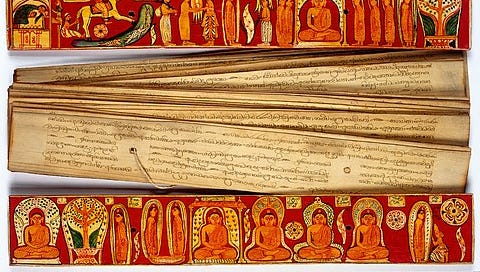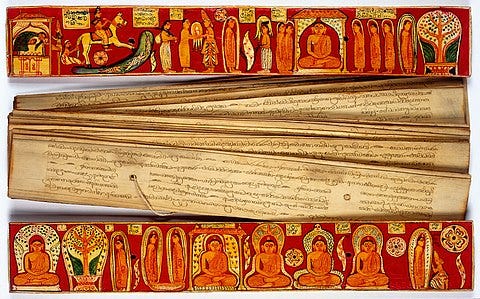In this issue, I’d like to share two compact but luminous discourses from the Itivuttaka, a lesser-known gem in the Khuddaka Nikāya of the Pāli Canon. The Itivuttaka (“This was said”) is a collection of sayings attributed to the Buddha, reported by the laywoman Khujjuttarā and preserved with a distinctive format: prose and verse.
Today we explore Itivuttaka 2.3 and 2.4, which illuminate the enduring power of kusala (wholesome actions) and the brightness of a mind freed from defilement.
Itivuttaka 2.3 — The Result of Goodness
Pali Text:
“Dveme, bhikkhave, dhammā. Katame dve? Kusalo ca dhammo, akusalo ca dhammo.
Kusalaṃ, bhikkhave, dhammaṃ bhāvetabbaṃ; akusalo dhammo pahātabbo.
Bhāvitattā ca kusalassa dhammassa, pahīnattā ca akusalassa dhammassa,
naḷo va paṭhamaṃ ūhacca, tato paṭhamaṃ ūhaccāti, evaṃ bhikkhu hoti.”Iti vuccati.
“Bhāvetabbaṃ kusalaṃ,
Akusalañca pahātabbaṃ;
Bhikkhu bhāvitasantāno,
Nāgo saṅgāmasāri viya.”
English Translation:
“Bhikkhus, there are these two things: the wholesome and the unwholesome.
The wholesome should be developed, the unwholesome should be abandoned.
Through the development of the wholesome and the abandoning of the unwholesome,
a monk becomes like a great elephant breaking free from its bonds.”Thus was it said.
“One should develop the wholesome,
And abandon the unwholesome.
The monk whose inner being is developed
Is like a battle elephant breaking its chains.”
Keep reading with a 7-day free trial
Subscribe to The Gentle Law to keep reading this post and get 7 days of free access to the full post archives.





